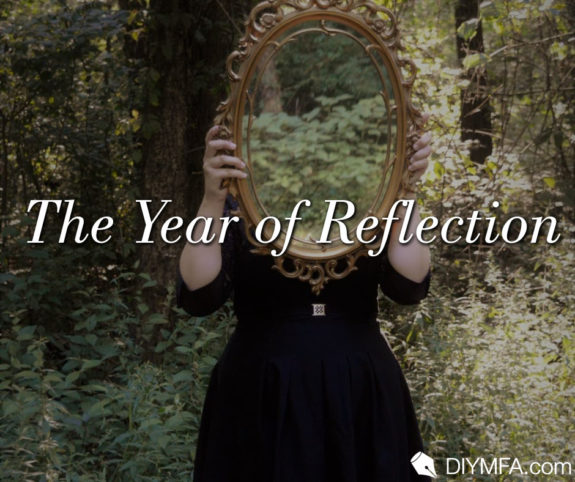Last week, during my yearly checkup, my doctor told me that she would be retiring in February. I expressed my regret and she decided to tell me why she was leaving. “They say 2020 is the year of reflection,” she said. “I just reflected on my life and I realized that it was time to move on.”
I left the office with that line in my head: They say 2020 is the year of reflection. It rang true to me. In a major, impactful way, the twin pandemics in America (the coronavirus and our George Floyd-prompted racial reckoning) forced us all to start from scratch on long-held beliefs and values.
Our lives and routines were shaken up as well. Many of us had more time on our hands, or at least different kinds of time. We got out into nature more. We intentionally stepped away from our screens. We got more sleep. We indulged in more individual leisure time. These new habits allowed us to enter a reflective mental space more often than we did when our lives were heavily scheduled, and resulted in some of the big life decisions that many, like my doctor, are now making.
Reflection is a vital part of feeling at peace with oneself. It’s also necessary for growth. Without reflection, we cannot know where we’ve been or where we’re headed. We cannot live with intention or set ourselves on a better path. While 2020 will eventually end, it benefits us all to keep reflection as part of our daily, weekly and seasonal routine into 2021 and beyond.
So how do we make reflection a lifestyle fixture?
Facilitate a Reflective State
I recently found myself on an unexpectedly long line. (Okay, yes, this was an early-voting line.) My phone battery, never reliable, chose to die with about an hour left to wait. I thought I’d go crazy; instead, I found myself in a pleasantly restful mental space. I wasn’t being productive, but it didn’t seem to matter, because I was where I needed to be. Time passed in a lazy way. As I waited, my mind drifted naturally to self-reflection. I thought about how many times I’d voted in the past, how much the right to vote mattered to me, and how my vote was upholding my values. By the time I reached my destination, I felt as though I had traveled farther in my mind, and the experience of voting itself seemed much more meaningful.
To facilitate this reflective state, intentionally create the circumstances involved during that long wait. First, disconnect from screens and other distractions more often. This takes a bit of effort. Consider a full-day tech sabbath, where you don’t check work email or social media. You can also eliminate or dial back on social media together. My strategy is to keep Facebook off my phone and use Facebook Feed Eradicator on my laptop browser. That way I can still access the groups I like, make posts of my own, and see my notifications, without succumbing to mindless scrolling.
Second, practice mindfulness. When you’re disconnected from screens and work, try to stay completely present. Use your senses to explore the sights, sounds and smells around you. Focus completely on the person you’re with or activity you’re doing. If you’re having trouble, take ten slow breaths. You can also play a fun game that connects you to your senses: tell yourself to name five things you see; four things you hear; three things you feel; two things you smell; and one thing you taste.
Take steps to encourage your reflective mindset, and you’ll find yourself slipping into it more often.
Make Reflection Part of Your Routine
How often is reflection beneficial? The answer will vary depending on your personality and temperament. In my case, I find a brief daily reflection, a longer weekly reflection, and an intensive seasonal reflection helpful.
For my daily reflection, I answer a few questions in my journal each day. These mostly pertain to my state of mind and are intended to help me focus on my mental health. But I also have a few that are more practical, such as “What have you created today?” and “How did you connect to your family today?”
My weekly reflection takes place both in my journal and in my bullet-journal style planner. In my journal, I answer a series of questions about my health, family, work life, and writing life. Those answers help me see whether I’m on track with my goals and prioritizing my personal values. In my planner, I think about what I’ve achieved in the past week, and what projects I’d like to take on in the coming week.
Every season, I sit down for a few hours and consider what I’d like the next few months to look like, based on my efforts in the previous season. Sometimes I set a word or intention for my time. Sometimes I prioritize work; other times, family or holidays. I use the why/what/how process to set goals for myself. I always feel proud of my growth and excited about more to come.
It takes effort to make reflection part of your routine, but its benefits are clear: a life lived intentionally, and with deeply-held values, that will bring you greater joy and peace.

Leanne Sowul is an award-winning writer and music teacher whose work has appeared in such places as Juxtaprose, Rappahannock Review, Hippocampus, Mothers Always Write and Confrontation; her live readings include Read 650’s “Gratitude” show at Lincoln Center. As an elementary band director, Leanne can play every woodwind, brass and percussion instrument (just don’t give her a cello!) and has directed over two hundred student performances. She also coaches adults in the art of creative practice through her newsletter, The Joyful Creative. In 2017, Leanne won both the Scott Meyer Award for personal essay and the All-American Dream Champion Award for music teaching. Leanne lives with her husband and two children in the Hudson Valley. Connect with her at www.leannesowul.com.







